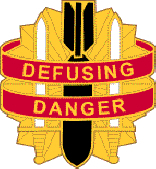Thomas E. Ricks's Blog, page 106
May 23, 2013
On suicide, sexual harassment, and command: A Naval officer's experience

By "A. Naval Officer"
Best Defense guest columnist
I'd like to
offer you my thoughts on this based on my experience in
command. Not many
folks know this, but as LT, I lost my deployment roommate to suicide about two
weeks after we came home from our first deployment.
Years later, when I was about to take command,
there was an unusual spike in the number of suicides in our wing. I remembered
what happened when I was a LT, so I asked my wife to help me talk to the entire
command about suicide. We had outside people come in and talk about the
standard "warning signs" and all, but it personally wasn't enough. After
the Q&A, I kept the entire command in place and opened up. I told them the
story about my roommate, how he did it, when he did it, why he did it, who he
left behind. I explained the emotions I went through, and I told them about
emotions I watched my skipper go through. The second-guessing, the rage, the
guilt. I told them that I never wanted anyone in the room to have to bear that
pain, and I never wanted to be the one to tell a family member that their
husband or wife or son or daughter took his or her own life. I explained that I
felt 100 percent responsible to everyone in that room, not just because Navy
regs told me so, but because it was honestly in my heart. I explained that if I
was willing to open up that way to them, then I also had to be willing to
follow through and that my office was open, my house was open, any time of day,
for someone in need. I had a very strong CMC who felt the same way, and he
helped to spread that level of commitment down, through the chief's mess. I
didn't want it to become "intrusive." I simply wanted people to be
willing to ask for help.
After that, I had sailors come talk to the CMC
and me and open up. Not just about suicide, but about anything on their minds. We
had others who we encouraged to speak with us when we went for a walk down the
flight line or the across the flight deck on the ship. We also knew the
"tough" guys well enough to break through their exterior when we could
tell they needed help. We just felt like it was an important part of knowing
our folks. I also saw it as my responsibility as "The Old Man" and as
someone who had been affected by suicide earlier in my career. It was just how
the CMC and I operated.
So I didn't really think about it much, until my
wife brought up an old story almost five years after I was in command. A sailor
came to me with some very personal issues that were obviously affecting his
performance at work. They were issues that the CMC and I could not solve for
him, but we helped him get help. Not just get help, but helped make sure he got
the right help. Ultimately, it resulted in his separation from the Navy. I remember
thinking, "He's a good kid" and that really it was in his best
interest and the Navy's best interest. When my wife brought the story up again
recently, it was in the context of suicide in the military. She said, "You
know that you saved that kid's life, don't you?" When she replayed the
scenario with me a few times, I realized she was right.
But I've found it is a different leadership
challenge when it comes to preventing sexual assault, particularly during my
last deployment, which was in the desert. We could try to connect with our
sailors when talking about sexual assault, enforce a buddy system, explain how
to watch out for each other and how alcohol can increase risk, conduct
walkthroughs of spaces, and make sure exterior lights were on throughout the
night. Senior executives from the Department visited us in theater and told us
what steps we could take to try to prevent sexual assault and we took the
advice on board. But in the end, all we could do is try because things were
external to what we could influence and we lived in a dynamic, transient
environment. A sexual assault could happen to any one of our folks, male or
female. The criminal could be someone from outside the military, outside the
command. Or far worse, inside the command. I never felt that "try"
was good enough, but I also did not want to give the impression that we were
already victimized by the fear of a sexual assault. I could only hope the phone
didn't ring. It never did.
Even if my phone didn't ring, it didn't mean a
sexual assault didn't happen on my watch. Restricted reporting, while it
protects the victim, doesn't alert the unit commander. As much effort as we put
into looking out for our shipmates, there may very well have been an unreported
sexual assault or an assault reported using a restricted report. How would I
ever know if we had failed? How would we ever know if we could have done
something differently or if our own command climate was a factor? How could we
position ourselves to prevent the next assault? How would I even know that a
victim wasn't comfortable reporting a crime to me? Or why?
The author is a
23-year Navy captain.
A former squadron commander, he has deployed to OIF and OEF
aboard ship and boots on the ground. He is married to a mental health
professional and is a supporter of military families.
Todd Greentree's seven principles for the next time we get mixed up in a small war

Todd Greentree, who served as
director of the RC-South initiatives group in Kandahar during 2010-2011, offers
these recommendations in an article in the Journal of Strategic Studies:
(1) Prepare above all to assist a government
through political action and economic development while helping it protect its
population from security threats, without taking the job over.
(2) Commit early and decisively, but for the
long-term, with clear political and military aims; trying to combat an
industrial strength insurgency is much harder, takes longer, and is likely to
be unsustainable.
(3) Create organizational arrangements tailored to
the specific situation and scale of threat, and are capable
of adapting rapidly.
(4) Establish clear lines of authority sufficient
to achieve unity of effort, while maximizing unity of command the closer the
situation is to war.
(5) Integrate civilian and military efforts at all
levels.
(6) In pursuing campaign plans and programs
maintain focus on political purpose.
(7) Educate a cadre of civilian and military officials
from multiple organizations and elaborate a shared civil-military doctrine.
Today's military sex scandal: SFC at West Point taped female cadets in the showers

The hits just keep on coming. Yesterday brought news that a sergeant first class
at West Point has been charged with videotaping at least a dozen female cadets, some of them while they were in the shower or in other states
of undress.
Bonus fact from reporter Thom Shanker, who
broke the story: "The Army made no announcement of the charges against Sergeant
McClendon, but it provided details after The New York Times learned of the
inquiry from people with ties to West Point who said they were alarmed by the
allegations and wanted to learn of the academy's plans to investigate and
prevent future violations."
Amazing how the chain of
command keeps on blaming those at the bottom. Maybe it is time to issue some
mirrors to the four stars and three stars?
May 22, 2013
Hey, the commandant's mystery reliefs are freaking out us Marine officers

By "A.
Marine Officer"
Best
Defense guest columnist
1/9 CO likely deserved to be relieved. The Div CG relieved
the battalion commander, the company commander, and the battalion gunner (a
chief warrant officer weapons expert). Gunners are responsible for weapons
training and employment advice. I haven't heard a peep about the investigation,
but it stands to reason that if the Gunner went down, it was an ammo handling
issue. If it was a training issue such as safe ammo handling, the CO has to go,
and I'm cool with that.
The problem is that there is ZERO fricking information coming
out of HQMC explaining ANY of this stuff. Nobody knows what to make of it, so
nobody knows how to tighten up their units. That feeds conspiracy theories and
loss of confidence in leadership because their actions start to look random and
unprincipled. Everyone is cool with a CMC when he fires a commander who screws
up -- DUI, banging a sergeant, etc. Everyone knows the deal. These mystery
reliefs are harder to stomach. Amos doesn't know it, but he OWES us an
explanation as to why he's firing O5s and O6s and hasn't cut a general officer
loose on his watch yet. That Gurganus is still drawing a paycheck
makes my blood boil.
I really earnestly and truly believe Amos is losing the faith
of the Marine Corps. There isn't much support for him that I've heard. People
see him flailing and taking folks down with him, not being intellectually
honest, not having a whole lot of good ideas or success. His resignation would
be good for the service. Paxton could ascend to the service chief level, they
could find some suitable aviator (Guts Robling, perhaps?) to be ACMC, and all
would be right with the world again. When Dunford is done at ISAF, they can
either make him the chairman or move him to an open COCOM like SOUTHCOM if the
timing lined up. Dunford is the heir apparent as CMC but a COCOM job would suit
him better, I think. I'd follow Dunford to hell. I'm agnostic about the rest,
but both Paxton and Robling have good reputations.
"A. Marine Officer" is just that. This
article does not necessarily represent the views of the commandant of the
Marine Corps, the Navy Department, the Defense Department, or the U.S.
government. But ask a battalion or regimental commander what they think.
Another Army general hits the rocks

The commanding general of Ft. Jackson, S.C., was suspended on allegations
of misconduct. Apparently it was an alleged
zipper malfunction.
I wish someone would get suspended on allegations of incompetence.
Comment of the day: Jim Gourley's thoughtful summary of the internet

In discussing my cranky comments about Twitter the other day, the
always insightful Jim Gourley summarized
how we have embraced the internet: "we decided to
use that vast network as a giant repository of pornography and cat
videos."
May 21, 2013
One thing I don't understand about the argument for U.S. intervention in Syria

Why would we want to get between the two sides of a
fight that is, in part, between Hezbollah
and al Qaeda?
Springtime in Pyongyang? China 'has secret plan to replace N. Korean leader'!

This is the second time I've heard lately about China
perhaps deciding that regime
change is the best course for handling North Korea. Fine by me.
Meanwhile, gunmen who
may have been members of the North Korean military took over a Chinese fishing
boat, stole its food and fuel, and demanded a ransom. "Rogue border guards" are
being blamed. The Chinese captain says he was in Chinese waters.
The AP quotes a
Chinese officer, Maj. Gen. Luo Yuan, as writing that, "North
Korea has gone too far! Even if you are short of money, you
can't grab people across the border and blackmail."
For once I agree with the head of Saudi Arabia's religious police -- about Twitter

The sheikh says Twitter is
bad,
and that anyone using it "has lost this world and his
afterlife." A bit extreme, but I understand the sentiment.
Myself, I would have put it in a more Wordsworthian way. I think that most social media are a sordid boon, and that late and soon, twitting and spending, we lay waste our powers.
So I say: Tweet less, live more. Technology is only liberating if you control it, rather than the other way around. We should not confuse data with meaning.
May 20, 2013
The answers to sexual assault and suicide may be the same: Dynamic leadership that makes soldiers feel like family

By Capt. Nick Nethery
Best Defense guest
columnist
I'm wondering if the massive
increase in sexual assaults over the last few years is
similar to the massive increase in suicides in the same period. And I'm
wondering if the response to this problem might be similarly ineffective.
Suicides go up
for a number of reasons, but rather than address those reasons, we stick a
band-aid on a sucking chest wound by reducing it to a powerpoint slideshow and
a video introduced by a sergeant major or general. In light of hard data
showing increased suicides at the exact same time as requirements on commanders
to administer these prevention classes have surged, is it possible that the
classes are exacerbating the problem?
I don't mean to
imply that the classes themselves cause suicides, but are leaders falling into
the trap of thinking that the problem is solved because the brief has been
given? That if you force your soldiers to sit through the brief, then you've
"done your part" and no further action is required?
Might it be the
same with sexual harassment and assault? Are leaders "checking the
block" by administering these classes, choosing to believe their command
is safe afterward, rather than addressing the underlying issues behind a rise
in harassment and assault? I am no psychologist or sex abuse counselor, but I
am a leader who tried to care about my soldiers when I had the fortune to lead
them. During my time in command, I was skeptical of the Army's solution to this
problem. I took a more dynamic approach. I knew all my soldiers, their
families, their birthdays, their kids' names, what their goals and aspirations
were, what kind of music and beer and cars they liked. I had male and female
soldiers, of all ages and backgrounds. Not to be too sappy, but we were family. And you know
what? We never had any of these problems.
Again, I just
see my little lane. I'm no general. But I realized the limitations of the
Army's answer to suicide prevention and sexual assault, and took a more active
approach, one where I knew my soldiers down to the tiniest detail. I trusted
them -- and showed them I did -- and they trusted me. I don't flatter myself
that all my soldiers liked me. I didn't have perfect commands, and we had some
other minor discipline issues, but in four years leading soldiers I never had a
single incident of suicide, suicidal ideation, or sexual harassment/assault. It
worked for me. My own bosses saw that my method worked, and were supportive as
long as I was meeting the Army's required training guidelines.
Capt. Nick
Nethery commanded the
737th and 722d EOD Companies, both at Ft. Bragg, and
took 722d to Iraq from May 2011 to June 2012. This article represents his own
views and are not necessarily those of the U.S. Army or the Department of
Defense.
Thomas E. Ricks's Blog
- Thomas E. Ricks's profile
- 437 followers



